Find a CBT Therapist
Search through our directory of local clinicians.
Featured Labs
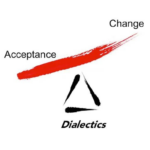 The Borderline Personality Disorder, Emotion Science, and Treatment Lab (BESTLab) - The Borderline Personality Disorder, Emotion Science, and Treatment Lab (BESTLab), located in the Department of Psychology at Palo Alto University, is directed by Janice Kuo, Ph.D.
The Borderline Personality Disorder, Emotion Science, and Treatment Lab (BESTLab) - The Borderline Personality Disorder, Emotion Science, and Treatment Lab (BESTLab), located in the Department of Psychology at Palo Alto University, is directed by Janice Kuo, Ph.D. The Parent-Child Interaction Therapy (PCIT) Lab - The Parent-Child Interaction Therapy (PCIT) Lab is located in the Department of Psychiatry of the University of Florida, and the Department of Psychology of West Virginia University. Directed by Cheryl B. McNeil, PhD.
The Parent-Child Interaction Therapy (PCIT) Lab - The Parent-Child Interaction Therapy (PCIT) Lab is located in the Department of Psychiatry of the University of Florida, and the Department of Psychology of West Virginia University. Directed by Cheryl B. McNeil, PhD. The Suicide & Emotion Dysregulation Lab/New Jersey Gun Violence Research Center (SEDL/GVRC) - The Suicide & Emotion Dysregulation Lab/New Jersey Gun Violence Research Center located at the Rutgers School of Public Health is directed by Michael Anestis, PhD. The Suicide and Emotion Dysregulation Laboratory (SEDL) was founded when Dr. Anestis was a faculty member in the clinical psychology doctoral program at the University of Southern Mississippi. In 2020, Dr. Anestis accepted a position as the Executive Director of the New Jersey Gun Violence Research Center (GVRC) and an Associate Professor in the School of Public Health at Rutgers. SEDL then became embedded within GVRC.
The Suicide & Emotion Dysregulation Lab/New Jersey Gun Violence Research Center (SEDL/GVRC) - The Suicide & Emotion Dysregulation Lab/New Jersey Gun Violence Research Center located at the Rutgers School of Public Health is directed by Michael Anestis, PhD. The Suicide and Emotion Dysregulation Laboratory (SEDL) was founded when Dr. Anestis was a faculty member in the clinical psychology doctoral program at the University of Southern Mississippi. In 2020, Dr. Anestis accepted a position as the Executive Director of the New Jersey Gun Violence Research Center (GVRC) and an Associate Professor in the School of Public Health at Rutgers. SEDL then became embedded within GVRC. 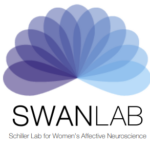 The Schiller Lab for Women’s Affective Neuroscience (SWAN) - The Schiller Lab for Women’s Affective Neuroscience (SWAN), located in the Center for Women’s Mood Disorders in the UNC Department of Psychiatry, is directed by Crystal Schiller, Ph.D.
The Schiller Lab for Women’s Affective Neuroscience (SWAN) - The Schiller Lab for Women’s Affective Neuroscience (SWAN), located in the Center for Women’s Mood Disorders in the UNC Department of Psychiatry, is directed by Crystal Schiller, Ph.D. The Sexuality, Health, and Gender (SHAG) Lab - The Sexuality, Health, and Gender (SHAG) Lab, located in the Department of Psychology at the Rosalind Franklin University of Medicine and Science, is directed by Brian A. Feinstein, Ph.D.
The Sexuality, Health, and Gender (SHAG) Lab - The Sexuality, Health, and Gender (SHAG) Lab, located in the Department of Psychology at the Rosalind Franklin University of Medicine and Science, is directed by Brian A. Feinstein, Ph.D.  The EMPOWER Lab “Engaging Minorities in Prevention, Outreach, Wellness, Education, & Research” is directed by Isha W. Metzger, PhD at Georgia State University. - Black youth are more likely to experience potentially traumatic stressors including abuse, neglect, racial trauma, and discrimination. The research of the EMPOWER Lab is aimed at preventing engagement in risky behaviors as well as understanding risk and resilience factors that impact the relation between trauma exposure and problematic outcomes.
The EMPOWER Lab “Engaging Minorities in Prevention, Outreach, Wellness, Education, & Research” is directed by Isha W. Metzger, PhD at Georgia State University. - Black youth are more likely to experience potentially traumatic stressors including abuse, neglect, racial trauma, and discrimination. The research of the EMPOWER Lab is aimed at preventing engagement in risky behaviors as well as understanding risk and resilience factors that impact the relation between trauma exposure and problematic outcomes.  The Knouse Lab (KNAB), located in the Department of Psychology at the University of Richmond, is directed by Laura E. Knouse, Ph.D. - Dr. Knouse partners with undergraduate student researchers to investigate self-regulation problems in people with and without ADHD with a focus on better understanding the cognitive, emotional, and behavioral processes that contribute to effective and ineffective self-regulation and motivation.
The Knouse Lab (KNAB), located in the Department of Psychology at the University of Richmond, is directed by Laura E. Knouse, Ph.D. - Dr. Knouse partners with undergraduate student researchers to investigate self-regulation problems in people with and without ADHD with a focus on better understanding the cognitive, emotional, and behavioral processes that contribute to effective and ineffective self-regulation and motivation.  The Research Enhancing Access to Culturally Informed Mental Health Services (REACH) Laboratory, located in the Department of Psychological Science at University of Texas Rio Grande Valley, is co-directed by Juventino Hernandez Rodriguez, PhD and Bianca T Villalobos, PhD. - For prospective students applying to our lab, you don’t have to be Latinx to want to research Latinx health disparities; allies are vital to furthering our mission to reduce disparities.
The Research Enhancing Access to Culturally Informed Mental Health Services (REACH) Laboratory, located in the Department of Psychological Science at University of Texas Rio Grande Valley, is co-directed by Juventino Hernandez Rodriguez, PhD and Bianca T Villalobos, PhD. - For prospective students applying to our lab, you don’t have to be Latinx to want to research Latinx health disparities; allies are vital to furthering our mission to reduce disparities. The Child and Adolescent Research in Emotion (CARE) Lab, located in the Department of Psychology at Lawrence University, is directed by Lori M. Hilt, Ph.D. - Hilt’s research involves understanding and preventing the development of psychopathology in adolescents, especially depression and self-injurious behavior.
The Child and Adolescent Research in Emotion (CARE) Lab, located in the Department of Psychology at Lawrence University, is directed by Lori M. Hilt, Ph.D. - Hilt’s research involves understanding and preventing the development of psychopathology in adolescents, especially depression and self-injurious behavior. Dr. Tina L. Boisseau Is Director of SOAR Lab at Northwestern University Feinberg School of Medicine - The SOAR lab strives to examine the emotional and behavioral factors that contribute to the development and maintenance of OCD and anxiety disorders.
Dr. Tina L. Boisseau Is Director of SOAR Lab at Northwestern University Feinberg School of Medicine - The SOAR lab strives to examine the emotional and behavioral factors that contribute to the development and maintenance of OCD and anxiety disorders.  Laura Holt is Charles A. Dana Research Associate Professor of Psychology at Trinity College in Hartford. - The Holt Research Lab investigates issues of importance to emerging adults with the goal of informing and disseminating interventions to improve emerging adults’ mental health and well-being.
Laura Holt is Charles A. Dana Research Associate Professor of Psychology at Trinity College in Hartford. - The Holt Research Lab investigates issues of importance to emerging adults with the goal of informing and disseminating interventions to improve emerging adults’ mental health and well-being. Louisa Sylvia is an associate director at the Dauten Family Center for Bipolar Treatment Innovation at Massachusetts General Hospital. - Louisa Sylvia is an associate director at the Dauten Family Center for Bipolar Treatment Innovation at Massachusetts General Hospital.
Louisa Sylvia is an associate director at the Dauten Family Center for Bipolar Treatment Innovation at Massachusetts General Hospital. - Louisa Sylvia is an associate director at the Dauten Family Center for Bipolar Treatment Innovation at Massachusetts General Hospital.
 The ADDRESS Mental Health Laboratory, in the Department of Psychology at Palo Alto University, is directed by Alayna Park, Ph.D. - Alayna Park directs the ADDRESS Mental Health Laboratory, in the Department of Psychology at Palo Alto University
The ADDRESS Mental Health Laboratory, in the Department of Psychology at Palo Alto University, is directed by Alayna Park, Ph.D. - Alayna Park directs the ADDRESS Mental Health Laboratory, in the Department of Psychology at Palo Alto University
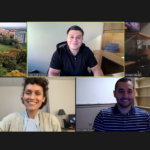 The Advancing Care through Community Engagement, Services, and Outcome Research (ACCESO) Laboratory, located in the Clinical Child Psychology Program at the University of Kansas, is directed by Omar Gudiño, Ph.D., ABPP. - Omar Gudiño, Ph.D., ABPP. directs the Advancing Care through Community Engagement, Services, and Outcome Research (ACCESO) Laboratory, located in the Clinical Child Psychology Program at the University of Kansas
The Advancing Care through Community Engagement, Services, and Outcome Research (ACCESO) Laboratory, located in the Clinical Child Psychology Program at the University of Kansas, is directed by Omar Gudiño, Ph.D., ABPP. - Omar Gudiño, Ph.D., ABPP. directs the Advancing Care through Community Engagement, Services, and Outcome Research (ACCESO) Laboratory, located in the Clinical Child Psychology Program at the University of Kansas
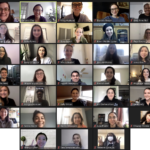 The Laboratory for Clinical and Developmental Studies, located in the Department of Counseling and Clinical Psychology at Teachers College, Columbia University, is directed by Christine Cha, Ph.D. - Dr. Christine Cha directs the Laboratory for Clinical and Developmental Studies (LCDS) at Teachers College, Columbia University.
The Laboratory for Clinical and Developmental Studies, located in the Department of Counseling and Clinical Psychology at Teachers College, Columbia University, is directed by Christine Cha, Ph.D. - Dr. Christine Cha directs the Laboratory for Clinical and Developmental Studies (LCDS) at Teachers College, Columbia University. The Back-Flanagan Lab, affiliated with the Addiction Sciences Division of the Department of Psychiatry and Behavioral Sciences at the Medical University of South Carolina and the Charleston (Ralph H. Johnson) VA Medical Center, is co-directed by Julie Flanagan, PhD, and Sudie Back, PhD. - Julie Flanagan, PhD, and Sudie Back, PhD. direct the lab at MUSC and the Charleston (Ralph H. Johnson) VA Medical Center.
The Back-Flanagan Lab, affiliated with the Addiction Sciences Division of the Department of Psychiatry and Behavioral Sciences at the Medical University of South Carolina and the Charleston (Ralph H. Johnson) VA Medical Center, is co-directed by Julie Flanagan, PhD, and Sudie Back, PhD. - Julie Flanagan, PhD, and Sudie Back, PhD. direct the lab at MUSC and the Charleston (Ralph H. Johnson) VA Medical Center. The Culture and Race/Ethnicity (CARE) in Youth Mental Health Lab, located in the Department of Psychology at the University of California, Los Angeles (UCLA) - In this, the inaugural featured lab from among the many whose researchers, teachers, and students are exploring one or more areas of scientific and/or clinical interest, we're pleased to showcase David Hansen's Child Maltreatment Lab at the University of Nebraska-Lincoln.
The Culture and Race/Ethnicity (CARE) in Youth Mental Health Lab, located in the Department of Psychology at the University of California, Los Angeles (UCLA) - In this, the inaugural featured lab from among the many whose researchers, teachers, and students are exploring one or more areas of scientific and/or clinical interest, we're pleased to showcase David Hansen's Child Maltreatment Lab at the University of Nebraska-Lincoln.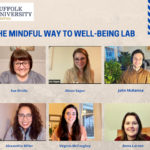 The Mindful Way to Well-Being Lab, located in the Department of Psychology at Suffolk University - The Mindful Way to Well-Being Lab explores how acceptance-based behavioral therapy-informed strategies can help buffer against contextual stressors, build resilience, and more.
The Mindful Way to Well-Being Lab, located in the Department of Psychology at Suffolk University - The Mindful Way to Well-Being Lab explores how acceptance-based behavioral therapy-informed strategies can help buffer against contextual stressors, build resilience, and more. The Anxiety and Stress Lab, located in the Department of Psychology and Neuroscience at the University of North Carolina at Chapel Hill - My primary research interests center on the mechanisms of perinatal mental health, with a focus on anxiety- and trauma-related concerns.
The Anxiety and Stress Lab, located in the Department of Psychology and Neuroscience at the University of North Carolina at Chapel Hill - My primary research interests center on the mechanisms of perinatal mental health, with a focus on anxiety- and trauma-related concerns.  The Global Mental Health and Addiction Program (GMAP), located in the Department of Psychology at the University of Maryland, College Park - My research interests focus around adapting behavioral health interventions in low-resource settings.
The Global Mental Health and Addiction Program (GMAP), located in the Department of Psychology at the University of Maryland, College Park - My research interests focus around adapting behavioral health interventions in low-resource settings. The Race, Disparities, and Intervention Laboratory, located at the University of Southern California Department of Psychology - Dr. Huey is an Associate Professor of Psychology and American Studies and Ethnicity at USC.
The Race, Disparities, and Intervention Laboratory, located at the University of Southern California Department of Psychology - Dr. Huey is an Associate Professor of Psychology and American Studies and Ethnicity at USC. Culture, Affect, Relationships (CARE) Lab, located in the Department of Psychology at Miami University, Ohio. - Dr. Vaishali Raval is professor of psychology and affiliate of global and intercultural studies at Miami University.
Culture, Affect, Relationships (CARE) Lab, located in the Department of Psychology at Miami University, Ohio. - Dr. Vaishali Raval is professor of psychology and affiliate of global and intercultural studies at Miami University. The Anxiety, Cognition, and Emotion (ACE) Lab, located at the Department of Psychology at Miami University - I have a passion for research that contributes to a better understanding of transdiagnostic mechanisms, particularly as they relate to anxiety and Obsessive-Compulsive-related disorders.
The Anxiety, Cognition, and Emotion (ACE) Lab, located at the Department of Psychology at Miami University - I have a passion for research that contributes to a better understanding of transdiagnostic mechanisms, particularly as they relate to anxiety and Obsessive-Compulsive-related disorders. The Anxiety and Behavioral Health Clinic (ABHC) and Research Laboratory, located at the Florida State University Department of Psychology - Norman B. (Brad) Schmidt, Ph.D. is Distinguished Research Professor in the Department of Psychology at the Florida State University.
The Anxiety and Behavioral Health Clinic (ABHC) and Research Laboratory, located at the Florida State University Department of Psychology - Norman B. (Brad) Schmidt, Ph.D. is Distinguished Research Professor in the Department of Psychology at the Florida State University. The Couples and Intimate Relationships Lab, located at the University of North Carolina at Chapel Hill (UNC) Department of Psychology and Neuroscience - My research focuses on developing and evaluating couple-based treatments for relationship distress and individual psychopathology.
The Couples and Intimate Relationships Lab, located at the University of North Carolina at Chapel Hill (UNC) Department of Psychology and Neuroscience - My research focuses on developing and evaluating couple-based treatments for relationship distress and individual psychopathology. The Pediatric Psychiatry Research Program, located at UT Southwestern Medical Center’s Children’s Health Dallas - Betsy Kennard has over 30 years of clinical experience with children and adolescents with a variety of psychiatric disorders.
The Pediatric Psychiatry Research Program, located at UT Southwestern Medical Center’s Children’s Health Dallas - Betsy Kennard has over 30 years of clinical experience with children and adolescents with a variety of psychiatric disorders. The Suicide Prevention and Risk Behaviors Lab, located at Western Kentucky University Department of Psychological Sciences - Amy M. Brausch is an Associate Professor in the Department of Psychological Sciences at Western Kentucky University. She teaches in the undergraduate and M.S. program in Psychological Science, which both have concentrations in clinical science.
The Suicide Prevention and Risk Behaviors Lab, located at Western Kentucky University Department of Psychological Sciences - Amy M. Brausch is an Associate Professor in the Department of Psychological Sciences at Western Kentucky University. She teaches in the undergraduate and M.S. program in Psychological Science, which both have concentrations in clinical science. The HIV Prevention Lab, located at Ryerson University Department of Psychology - My research interests generally focus on the study of human sexual functioning. My dissertation explored the physical, mental, and social health of gay, bisexual, and queer men experiencing anodyspareunia (i.e., pain receptive anal penetration).
The HIV Prevention Lab, located at Ryerson University Department of Psychology - My research interests generally focus on the study of human sexual functioning. My dissertation explored the physical, mental, and social health of gay, bisexual, and queer men experiencing anodyspareunia (i.e., pain receptive anal penetration).
 The Mood and Personality Studies (MAPS) Lab, located at the Ohio State University (OSU) Department of Psychology - Dr. Jennifer Cheavens is an Associate Professor and Director of Clinical Training in the Department of Psychology at the Ohio State University (OSU).
The Mood and Personality Studies (MAPS) Lab, located at the Ohio State University (OSU) Department of Psychology - Dr. Jennifer Cheavens is an Associate Professor and Director of Clinical Training in the Department of Psychology at the Ohio State University (OSU). PTSD Research and Treatment Lab, located at the Case Western Reserve University Department of Psychological Sciences - Dr. Feeny is a licensed clinical psychologist, Professor, and former (until January 2019) Director of Clinical Training at Case Western Reserve University in the Department of Psychological Sciences. She teaches, mentors, and provides clinical supervision at graduate and undergraduate levels.
PTSD Research and Treatment Lab, located at the Case Western Reserve University Department of Psychological Sciences - Dr. Feeny is a licensed clinical psychologist, Professor, and former (until January 2019) Director of Clinical Training at Case Western Reserve University in the Department of Psychological Sciences. She teaches, mentors, and provides clinical supervision at graduate and undergraduate levels. Peer Relations Lab, located at the University of North Carolina at Chapel Hill (UNC) Department of Psychology and Neuroscience - Mitch is the John Van Seters Distinguished Professor of Psychology and Neuroscience and Director of Graduate Studies at the University of North Carolina at Chapel Hill
Peer Relations Lab, located at the University of North Carolina at Chapel Hill (UNC) Department of Psychology and Neuroscience - Mitch is the John Van Seters Distinguished Professor of Psychology and Neuroscience and Director of Graduate Studies at the University of North Carolina at Chapel Hill Dialectical Behavior Therapy Clinic at Rutgers University in the Graduate School of Applied and Professional Psychology, Rutgers University - Shireen L. Rizvi is Associate Professor of Clinical Psychology at the Graduate School of Applied and Professional Psychology at Rutgers University where she also holds affiliate appointments in the psychology department and the Department of Psychiatry.
Dialectical Behavior Therapy Clinic at Rutgers University in the Graduate School of Applied and Professional Psychology, Rutgers University - Shireen L. Rizvi is Associate Professor of Clinical Psychology at the Graduate School of Applied and Professional Psychology at Rutgers University where she also holds affiliate appointments in the psychology department and the Department of Psychiatry.  Center for the Study and Treatment of Anxious Youth at Palo Alto University - Robert D. Friedberg is Head of the Child Emphasis Area at Palo Alto University. He is a Board-Certified Diplomate (ABPP) in CBT and a Founding Fellow of the Academy of Cognitive Therapy.
Center for the Study and Treatment of Anxious Youth at Palo Alto University - Robert D. Friedberg is Head of the Child Emphasis Area at Palo Alto University. He is a Board-Certified Diplomate (ABPP) in CBT and a Founding Fellow of the Academy of Cognitive Therapy. Center for Weight, Eating and Lifestyle Science (WELL Center) at Drexel University’s Department of Psychology - Dr. Forman is a Professor of Psychology and is the founding Director of the Center for Weight, Eating and Lifestyle Science (WELL Center) at Drexel University.
Center for Weight, Eating and Lifestyle Science (WELL Center) at Drexel University’s Department of Psychology - Dr. Forman is a Professor of Psychology and is the founding Director of the Center for Weight, Eating and Lifestyle Science (WELL Center) at Drexel University. University at Buffalo Alcohol Research Lab at the University at Buffalo, Department of Psychology - Thank you for participating in ABCT's Featured Lab program! It's time to get acquainted with Jennifer Read and her lab.
University at Buffalo Alcohol Research Lab at the University at Buffalo, Department of Psychology - Thank you for participating in ABCT's Featured Lab program! It's time to get acquainted with Jennifer Read and her lab.
 Program for Anxiety, Cognition, and Treatment (PACT) Lab at the University of Virginia, Department of Psychology - Bethany Teachman is a Professor of Clinical Psychology and Director of Clinical Training and Director of Diversity and Inclusion at the University of Virginia's Psychology Department.
Program for Anxiety, Cognition, and Treatment (PACT) Lab at the University of Virginia, Department of Psychology - Bethany Teachman is a Professor of Clinical Psychology and Director of Clinical Training and Director of Diversity and Inclusion at the University of Virginia's Psychology Department.  David J. Hansen, Ph.D., Child Maltreatment Lab, University of Nebraska-Lincoln - In this, the inaugural featured lab from among the many whose researchers, teachers, and students are exploring one or more areas of scientific and/or clinical interest, we're pleased to showcase David Hansen's Child Maltreatment Lab at the University of Nebraska-Lincoln.
David J. Hansen, Ph.D., Child Maltreatment Lab, University of Nebraska-Lincoln - In this, the inaugural featured lab from among the many whose researchers, teachers, and students are exploring one or more areas of scientific and/or clinical interest, we're pleased to showcase David Hansen's Child Maltreatment Lab at the University of Nebraska-Lincoln.